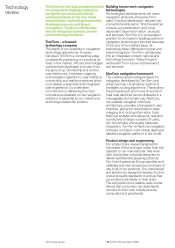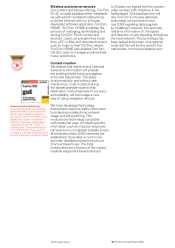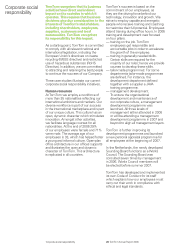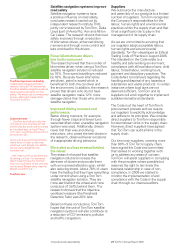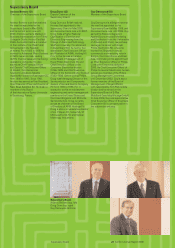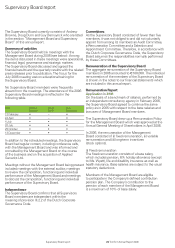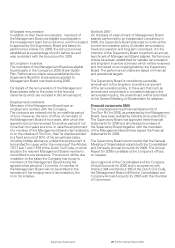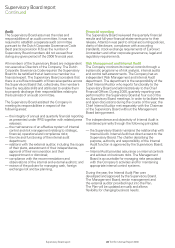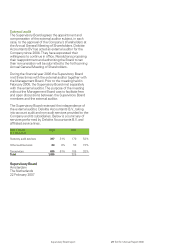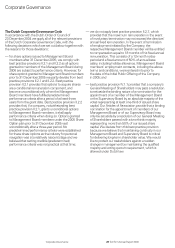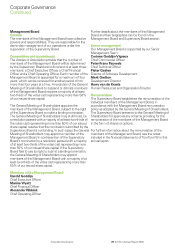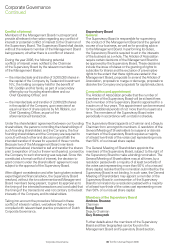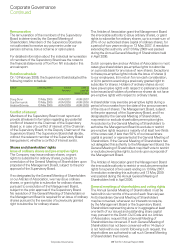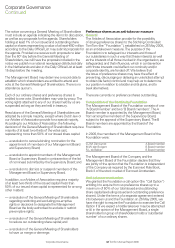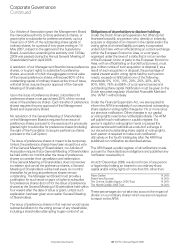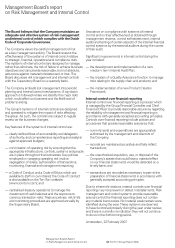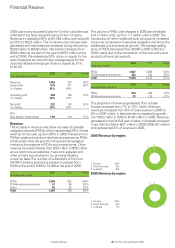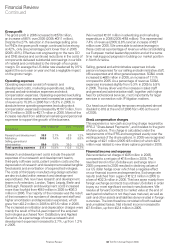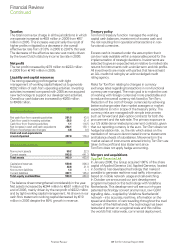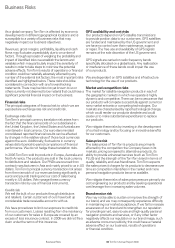TomTom 2006 Annual Report Download - page 30
Download and view the complete annual report
Please find page 30 of the 2006 TomTom annual report below. You can navigate through the pages in the report by either clicking on the pages listed below, or by using the keyword search tool below to find specific information within the annual report.Corporate Governance 28 TomTom Annual Report 2006
Corporate Governance
The Dutch Corporate Governance Code
In accordance with the Dutch Order of Council of
23 December 2004 we apply all of the relevant provisions
of the Dutch Corporate Governance Code, with the
following deviations which are set out below together with
the reasons for those deviations:
— for share options issued to Management Board
members after 31 December 2005, we comply with
best practice provisions II.2.1 and II.2.2 as all options
granted to members of the Management Board during
2006 are subject to performance criteria. However, for
share options granted to Management Board members
prior to 31 December 2005 we partly deviate from best
practice provisions II.2.1 and II.2.2. Best practice
provision II.2.1 provides that options to acquire shares
are a conditional remuneration component, and
become unconditional only when the Management
Board members have fulfilled predetermined
performance criteria after a period of at least three
years from the grant date. Best practice provision II.2.2
provides that, if a company, notwithstanding best
practice provision II.2.1, grants unconditional options
to Management Board members, it shall apply
performance criteria when doing so. Options granted
to Management Board members under the 2005 Share
Option plan prior to 31 December 2005 vest
unconditionally after a three-year period. No
predetermined performance criteria were established
for these share options as the industry for personal
navigation was at a relatively nascent stage and we
believed that setting credible (predetermined)
performance criteria was not practical at that time;
— we do not apply best practice provision II.2.7, which
provides that the maximum remuneration in the event
of involuntary termination may not exceed the directors’
annual fixed remuneration. In the event of termination
of employment initiated by the Company, the
respective Management Board member will be entitled
to compensation equal to 18 months of his fixed annual
remuneration. This consists of a 12-month notice
period and a fixed amount of 50% of annual base
salary, including holiday allowance. Management Board
members’ employment contracts, including the above
terms and conditions, were entered into prior to
the date of the Initial Public Offering of the Company
in 2005; and
— best practice provision IV.1.1 provides that a company’s
General Meeting of Shareholders may pass a resolution
to set aside the binding nature of a nomination for the
appointment of a member of the Management Board
or the Supervisory Board by an absolute majority of the
votes representing at least one-third of issued share
capital. Our Articles of Association provide that a binding
nomination for the appointment of members of our
Management Board or of our Supervisory Board may
only be set aside by a resolution of our General Meeting
of Shareholders passed with a two-thirds majority
representing more than 50% of our issued share
capital. We deviate from this best practice provision
because we believe that maintaining continuity in our
Management Board and Supervisory Board is critical
for delivering long-term shareholder value. We would
like to protect our stakeholders against a sudden
change in management by maintaining the qualified
majority and voting quorum requirement, which is
allowed under Dutch law.


